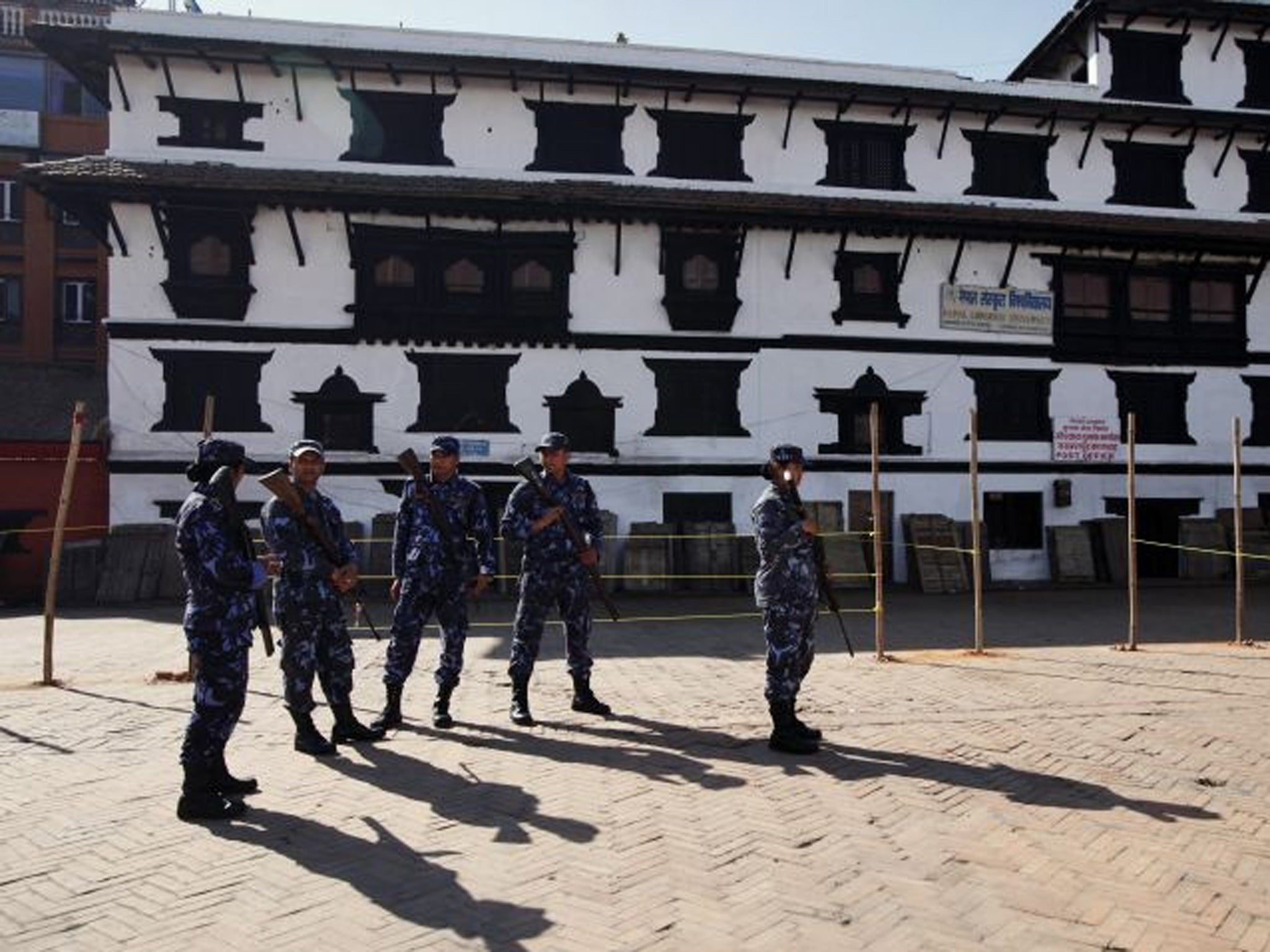Far from Shangri-La: Tourists fire-bombed, candidates attacked and voters intimidated in Nepal
Violence flares ahead of election, with a fragile peace process at stake as hardline Maoist splinter group seeks to control agenda

It's election time in Nepal, which means fire-bombed tourist buses, candidates being attacked and voters intimidated: the country's violent politics has never lived up to its mythical Shangri-la reputation.
The past 10 days have seen a spate of attacks across Nepal, a nation of 30 million sandwiched between India and China, as it heads into Tuesday's crucial election. At stake is a fragile peace process and ambitious plans to spread power among its bewildering array of ethnicities and castes.
A hardline Maoist splinter group that opposes the poll is behind the violence. Among the dozens of victims this week was a severely burned five-year-old girl whose bus was petrol-bombed on the way to Kathmandu.
No one calls this 'terrorism' in a country wearily accustomed to political violence. It's a 'banda', or a 'transport strike', albeit one that finds no support among transport workers, who are desperately dependent on meagre daily wages.
"For a political strike, we don't need the support of the people," Dev Gurung, a leader of the hardline group, told The Independent. He rattled off a list of reasons for the boycott, which ultimately came down to the fact that his faction feels left out of political negotiations. "The other parties do not respect the rule of law," he said.
Nepal has undergone seismic political changes since a brutal 10-year Maoist insurgency, which claimed around 13,000 lives, ended in 2006. The rebels took part in elections for the first time two years later and colluded with their mainstream rivals to abolish the much-despised monarchy. The Maoists emerged on top, riding a wave of support from Nepal's largely feudal countryside.
Nepal's mosaic of 125 ethnicities and 123 languages has long been dominated by a handful of upper castes based in the capital, who have resisted Maoist plans to federalise the country. The upshot has been political chaos, with five governments in as many years. The parliament building has been deserted for 18 months since talks on a new constitution collapsed in May 2012.
"People were very excited at the time of the last election. Now they are disillusioned and confused," said Dipendra Jha, a human rights lawyer representing the Madhesi community in the south of the country. "But they still see a ray of hope that elections can open the door to change. They are tired of all the militancy."
Many former fighters feel deeply frustrated that their bitter sacrifices have resulted in an endless talking shop. A third of the Maoist party split off last year to form the hardline faction that is now opposing the election.
Despite the threat of violence, thousands of voters were piling into - and on top of - buses today, heading back to their home constituencies to vote.
Results are notoriously hard to predict in Nepal, which has little in the way of opinion polls. The fear is that another stalemate will occur; empowering hardliners who say democracy has failed.
"The state has not provided dignity, security or basic services," said CK Lal, a well-known commentator in Kathmandu. "With so much inequality and division, the space for militancy is always there."
Subscribe to Independent Premium to bookmark this article
Want to bookmark your favourite articles and stories to read or reference later? Start your Independent Premium subscription today.

Join our commenting forum
Join thought-provoking conversations, follow other Independent readers and see their replies